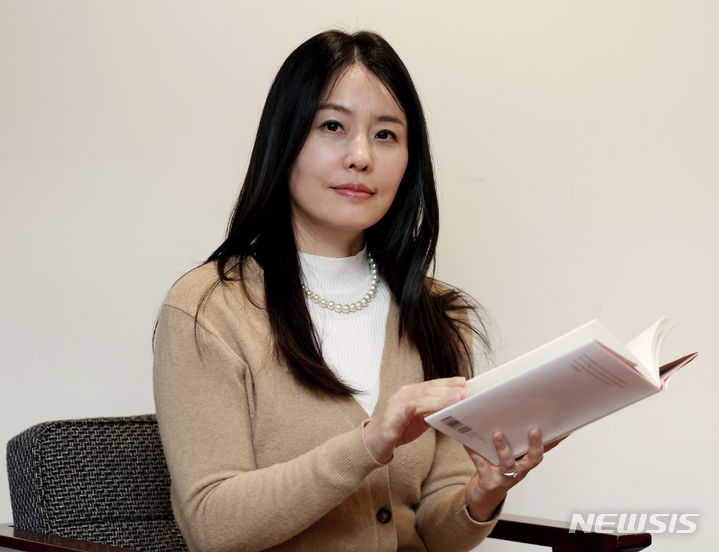Physical Address
304 North Cardinal St.
Dorchester Center, MA 02124
Physical Address
304 North Cardinal St.
Dorchester Center, MA 02124

In a society bound by literary norms, Lee Ji-ah emerges as a solitary poet and experimental writer, challenging the conventions of contemporary Korean literature. As the only Korean author writing in the genre of “guksi,” she has paved her own path with a sincere passion for literature.
It took Lee Ji-ah 15 years to gain recognition in the literary world. She received the Rookie Award for her play in the monthly literary magazine “Monthly Literature” in 2000, and another 15 years later, she was awarded the Rookie Award for her poetry in “Cooltura.” Despite facing difficulties due to early marriage and childcare, she ultimately concluded that “literature is the only thing I want to dedicate my life to.”
“I think I was a little crazy about art,” confessed Lee Ji-ah.
Her passion for literature was evident even during her university days. Despite financial hardships, she chose employment over pursuing higher education. However, while studying in night school, she came across the poetry of Kim Su-yeong, which deeply immersed her in the art of writing plays and poetry. This marked the foundation of her current “guksi” style.
From her debut collection “Ottogi” to the recent release of “Walking with the Baby Wolf,” Lee Ji-ah consistently incorporates “guksi” poetry into her works. She experiments with various unconventional forms of poetry that may not be widely popular.
“Writing poetry is my way of conversing with the world. Even if literature goes beyond conventions or is not easily understood, it should be able to create such conversations to survive,” she explained.
During a recent meeting at a café in Seoul’s Jung-gu district, Lee Ji-ah discussed the various experiments and approaches in her poetry collections.
One scene from her “guksi” play titled “The Untranslatable Hybrid Personality and Guksi” goes as follows:
“Guksi” may be unfamiliar to readers encountering it for the first time. While lyric poetry and narrative poetry are well-known, “guksi” is not a genre that immediately comes to mind when thinking of poetry, except for Greek tragedies or Shakespeare.
“I bring in the form but strive to break the conventions associated with it,” explained Lee Ji-ah.
Her poetry elicits two main reactions: “It’s so good” and “It’s so strange.” Words like “strange” and “difficult” are frequently used to describe her “guksi” poetry. Readers often feel perplexed by the combination of unfamiliar images and humorous elements.
The unfolding narratives and sentences may be bewildering, but it is intentional. “If the images are too vivid, they won’t last long,” she explains. Lee Ji-ah constantly challenges herself by changing words and utilizing her imagination.
While readers may not fully understand her poetry, she is satisfied when they grasp the essence of her work.
“That’s enough. It’s sufficient.”
If you’re wondering where the article came from!
#